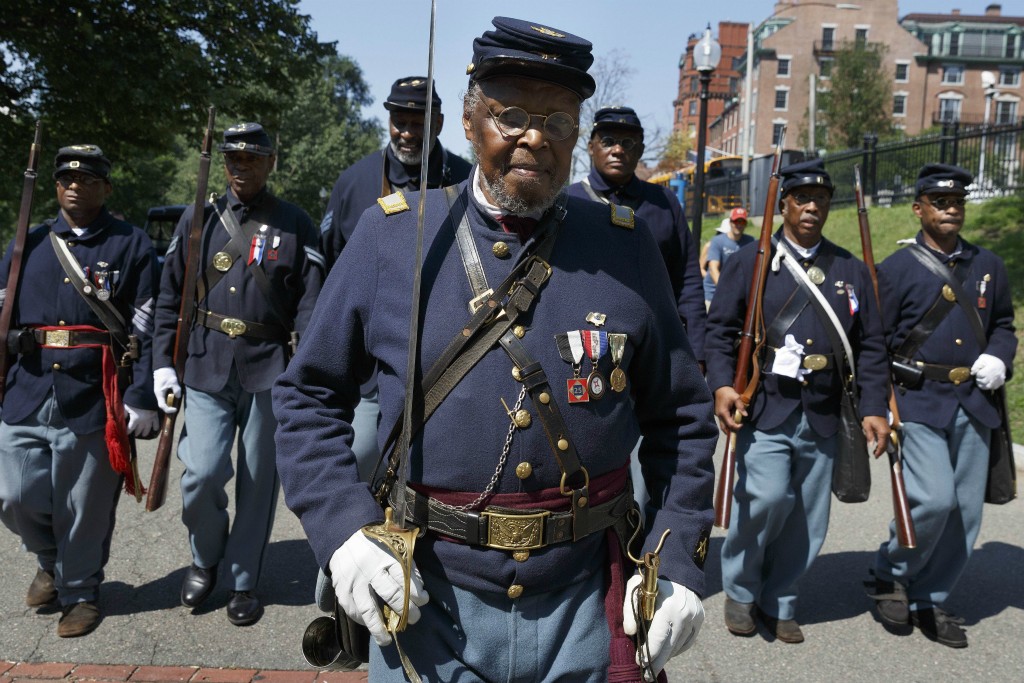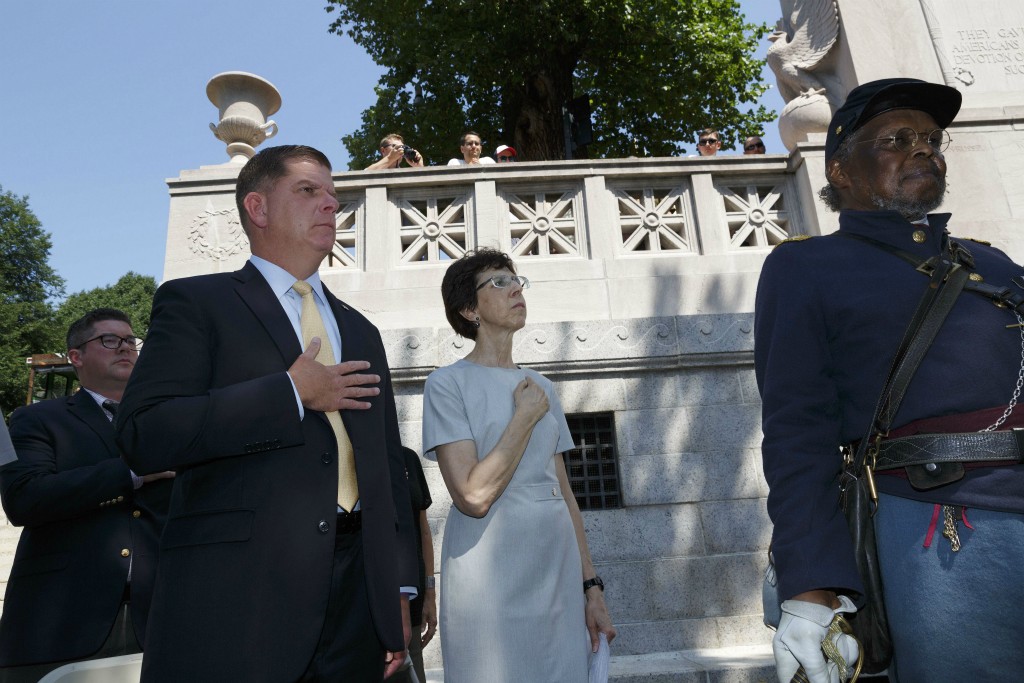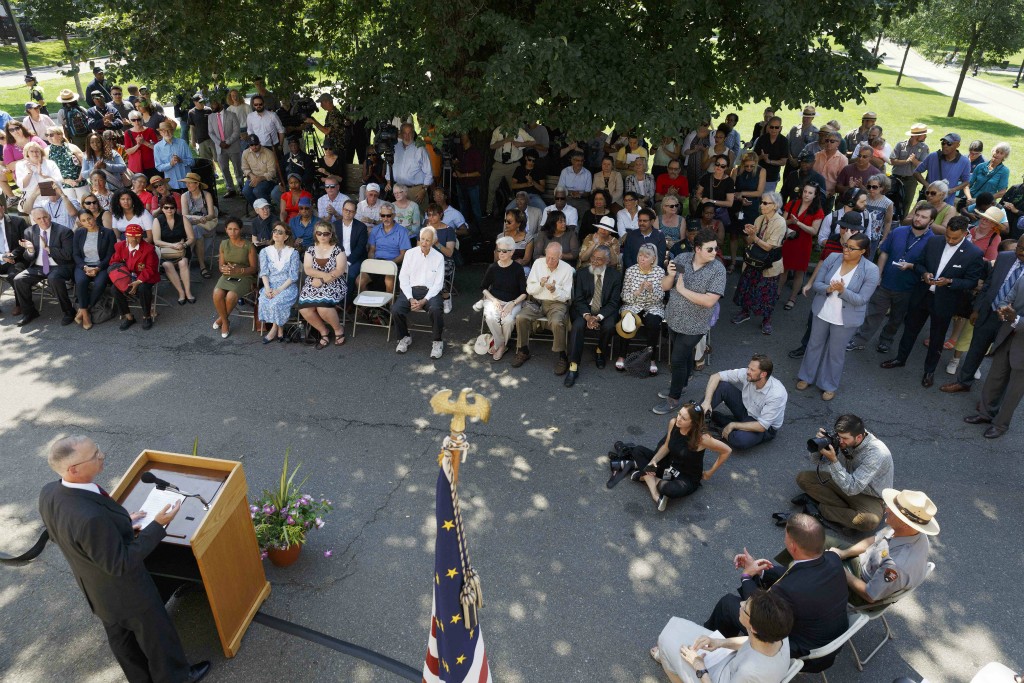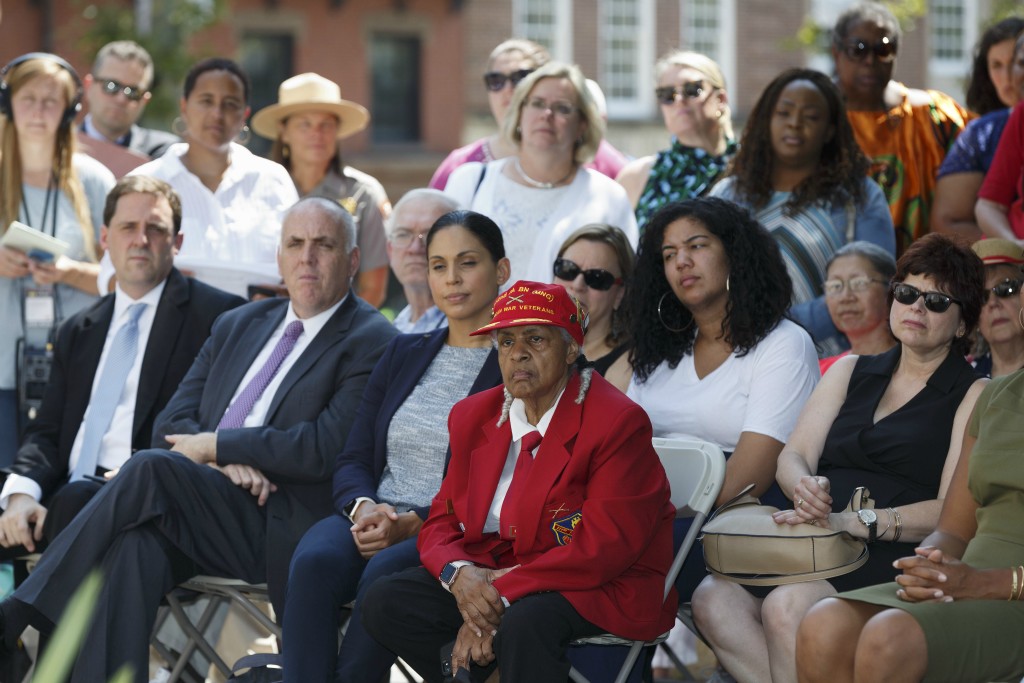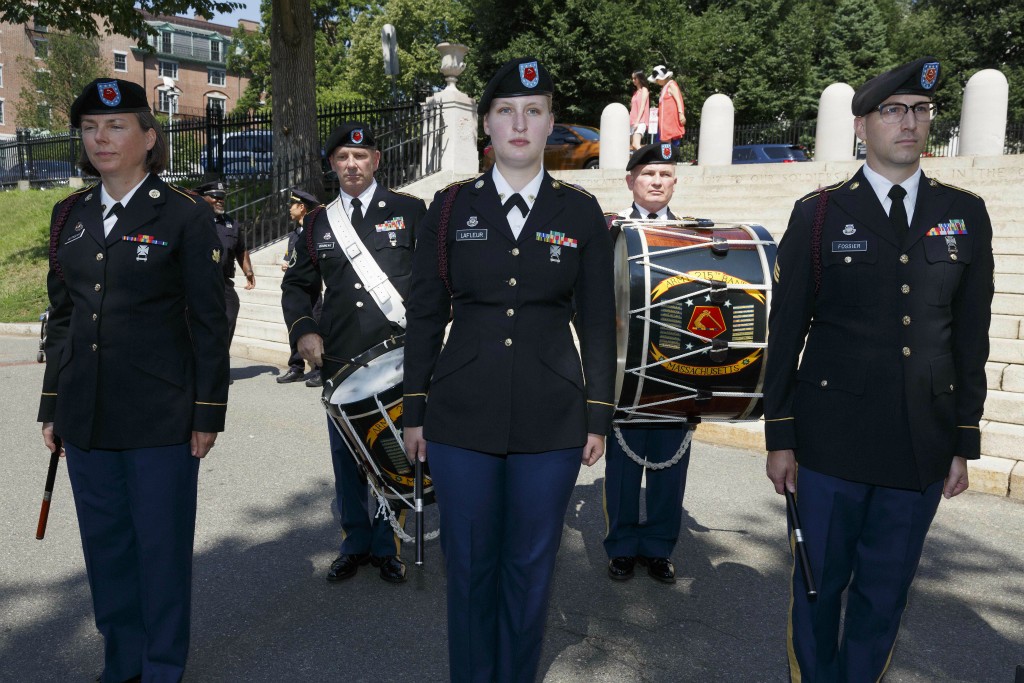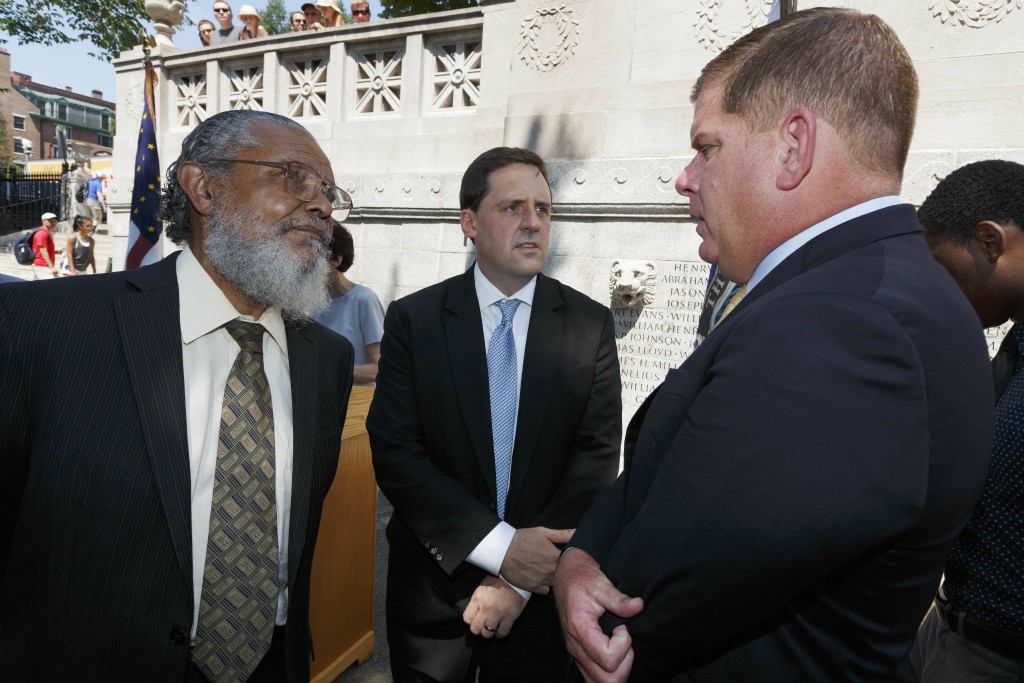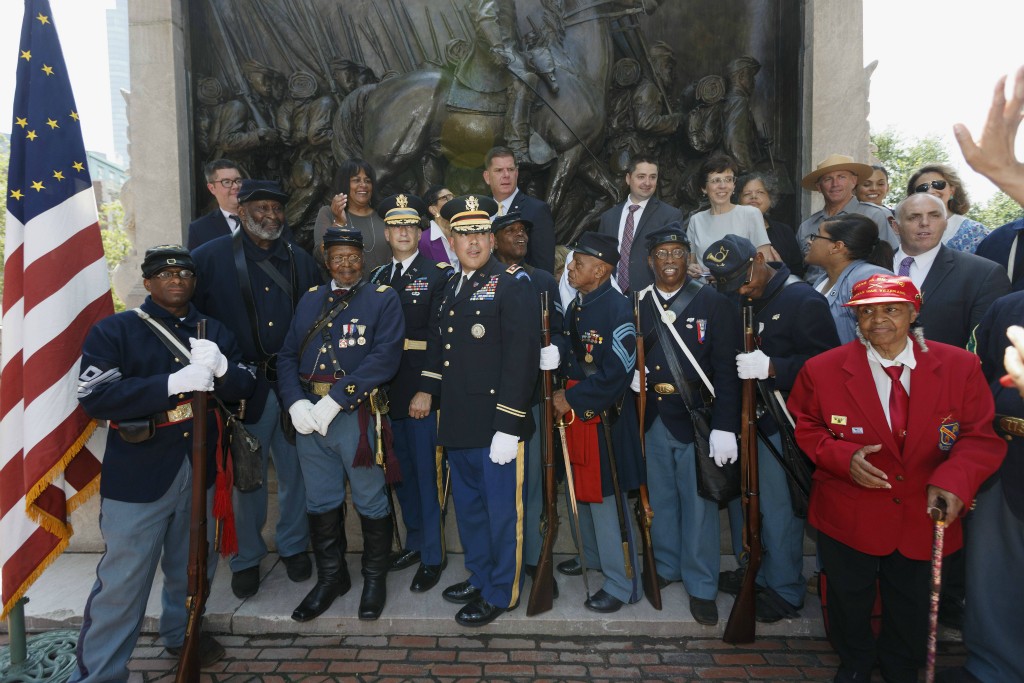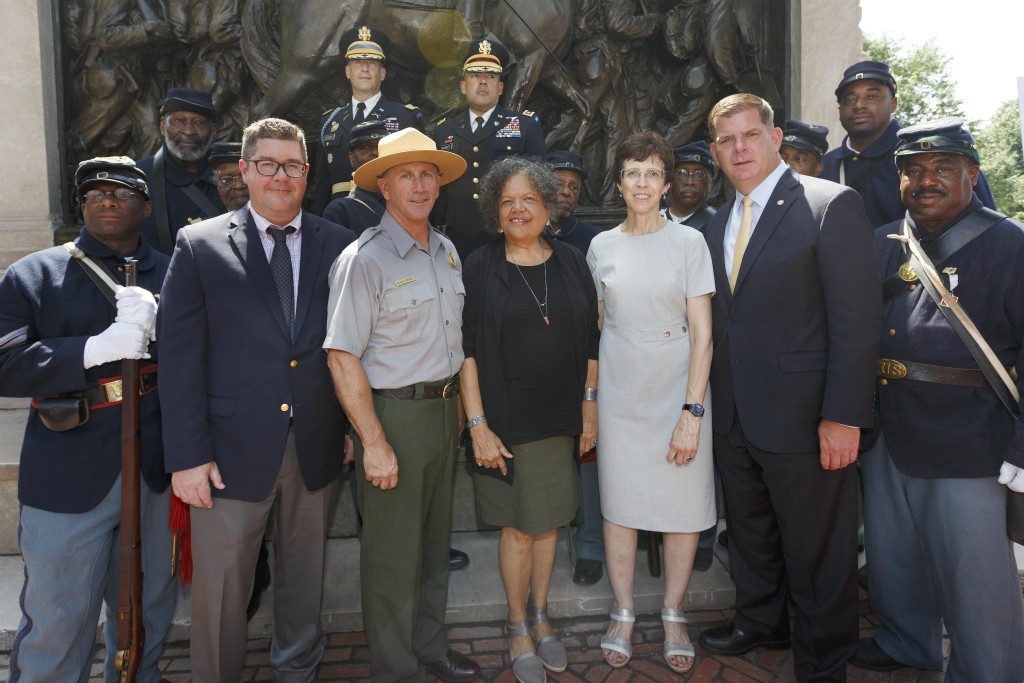
Left to right: Christopher Cook, City of Boston; Michael Creasy, National Parks Service; Marita Rivero, Museum of African American History; Liz Vizza, Friends of the Public Garden; Mayor Martin J. Walsh, City of Boston – Shaw 54th Ceremony
PARTNERSHIP SIGNS MEMORANDUM OF UNDERSTANDING TO RESTORE SHAW MEMORIAL
The National Park Service, Friends of the Public Garden, the Museum of African American History, and Mayor Martin J. Walsh signed, on July 27, a Memorandum of Understanding to jointly restore the Shaw 54thRegiment Memorial. The group, along with other nonprofit organizations, will work to highlight the lasting impact that Boston’s abolitionist community had on American history.
Situated on Boston Common on the corner of Beacon and Park Streets and considered to be one of the nation’s greatest public monuments, the Shaw Memorial will undergo a $2.8 million restoration in 2019 to ensure its long-term stability. Along with the restoration and partnership, new programming developed by the partners and other collaborators will provide context, encourage public engagement and invite conversations on race, freedom and justice.
The National Park Service is contributing half of the funding – $1.4 million – to this effort. The Friends, with generous support from the Harold Whitworth Pierce Charitable Trust, is contributing $750,000, and the City is providing $650,000 (and has allocated another $100,000 if more funds are needed).
“Boston is deeply proud of the Memorial to Robert Gould Shaw and the Massachusetts 54thRegiment. Through the power of great art, it keeps alive one of the noblest moments in our history and it reminds us of our duty as Bostonians to lead the nation’s progress toward full equality,” said Mayor Walsh. “I am grateful that, through this partnership between the City of Boston, the National Park Service, Friends of the Public Garden, and the Museum of African American History, we will preserve the Memorial for generations to come, and rededicate ourselves to telling the story of these brave Bostonians and advancing together the values they fought for.”
“This new partnership is a commitment to not only restore this significant monument but to tell the story of the brave men of the 54thRegiment, who sacrificed so much both on and off the battlefield,” said Liz Vizza, Executive Director of Friends of the Public Garden. “As partners, we want to take this opportunity to explore the larger narrative about race relations in our own communities, and directly engage visitors to the Common. We look forward to amplifying the symbolic voice of the monument and promoting community dialogue with programs throughout the year.”
The stirring bas-relief Memorial was created by the great American sculptor, Augustus Saint Gaudens. It was installed in 1897. Led by Colonel Robert Gould Shaw, the 54thwas the first regiment of black troops recruited from the North to fight for their freedom in the Civil War.
“The National Park Service ranked the Shaw 54th Regiment Memorial as one of its highest preservation projects in the nation,” stated Michael Creasey, Superintendent of the National Parks of Boston. “The creation of the Memorial, showing the individuality and humanity of the black soldiers marching alongside their young white colonel…each stoic and unwavering in his step off to war in the fight for freedom, is both a reminder of our past and an expression of faith in the future. Preserving this memorial is of great importance.”
According to Marita Rivero, the Museum of African American History’s Executive Director, activities that coincide with the restoration of the Shaw Memorial will help attract interest in and attention to Boston’s leadership role in the Abolitionist Movement.
“Free black Americans, and those having common cause with them, led the campaign to end slavery and demand equal rights. Boston played a central role in this significant part of American history,” said Rivero. “Homes on the north slope of Beacon Hill were part of the Underground Railroad, while Frederick Douglass recruited black soldiers for the 54thRegiment at the African Meeting House which is part of our Joy Street site. Our programming will reflect and celebrate these critical moments in American history.”
Despite regular care over the recent decades, systemic shortcomings in the monument’s design have caused water intrusion. Most significantly, the monument’s brick core has deteriorated, making it vulnerable to seismic events. NPS, the City of Boston and the Friends are funding this major conservation effort to reconstruct the Memorial and ensure its long-term stability. Together with the Museum, they will use this opportunity to engage with the community in critical conversations on race, freedom and justice, as well as the power of art to keep important stories alive and relevant today.



